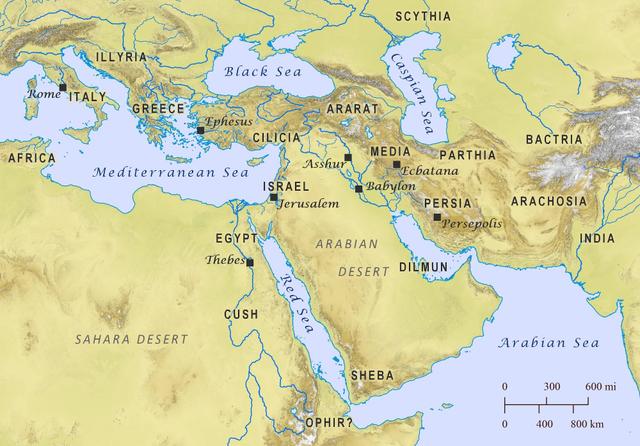Sanctification looks like living lives of peace with other people, not lives of bitterness.
The Pauline Author calls us to Pursue peace with all men, in the immediate context of exhorting us to run on straight paths with the energy to endure to the end of the race (verses 12-13). When we help one another, we should pursue it in a peaceful manner, since we’re trying to benefit each other. A very similar verse is found in Romans 14:19, So then we pursue the things which make for peace and the building up of one another. One of our greatest callings as Christians is to minister to one another. This is a part of our sanctification, as verse 14 concludes.
Without sanctification, no one will see the Lord. Sanctification is the process of making us holy, making us like Christ, maturing us as believers. The end goal of our salvation (teleo, the finished result) is that we would become mature Sons of God in our daily walk. Without sanctification, others will not see the Lord in us. Every person will see the Lord in the next life, even non-believers. Philippians 2:10 says every knee will bow to Jesus. This verse is not talking about a path to get to be able to see Jesus in the next life. This verse speaks of our witness before men in this life. As we abide in Jesus, others can see Jesus in us. When we sow peace, in the manner Jesus sowed peace, we show Jesus to others.
Sanctification is the goal for us as believers, from our rebirth in Christ (John 3:5) to the completion of our faith (Hebrews 2:10). Christ has lifted us out of sin and death, enabling us by His Spirit to live righteously now through faith. In doing so, we are matured and sanctified. This shapes us to be more like Christ. Through this sanctification, we will be able to see the Lord when we die. God began this work in us, and continues it (Philippians 1:6).
Immediately following this call for peace, the Pauline Author expounds, See to it that no one comes short of the grace of God; that no root of bitterness springing up causes trouble, and by it many be defiled. Bitterness among believers will defile their ability to run the race. It causes trouble, leading us to come short of the grace of God. This means wasting the call God has on our lives. He has given us unlimited grace so that we may be sanctified, and live lives imitating Christ in faithful obedience to God. Bitterness is specified here as a serious problem that keeps Christians from living their faith.
Bitterness is a particular poison. To cling to bitterness means we refuse to let Jesus be the judge. And in seeking to punish others, we mainly punish ourselves. By focusing on the offense we have endured, we cannot focus on the race set before us, the reward of pleasing God. Instead we are stuck focusing on ourselves and the rejection we experienced. At the beginning of this chapter we saw that Jesus endured rejection, but “despised” it compared to the reward set before Him in completing his obedience to His Father. His sacrifice on the cross paved the way for every person to have peace with God through faith.
Biblical Text
14 Pursue peace with all men, and the sanctification without which no one will see the Lord. 15 See to it that no one comes short of the grace of God; that no root of bitterness springing up causes trouble, and by it many be defiled;
Check out our other commentaries:
-
Matthew 3:7 meaning
Matthew introduces the main opponents of Jesus as Messiah: the Pharisees and the Sadducees. They have heard of John’s popularity and have come to be...... -
Matthew 14:15-21 meaning
Jesus multiplies the provisions of five loaves and two fish to feed over five thousand people. This miracle parallels the God’s provision of manna for...... -
Amos 5:18-20 meaning
Amos again announces judgment on the unrepentant Israel. The people of God will experience the day of the LORD and it will be a day...... -
Matthew 5:17-20 meaning
Jesus tells His disciples that He is not abolishing the law, but fulfilling what Moses and the prophets taught. However, He makes clear that professional...... -
Exodus 32:1-6 meaning
After Moses stayed on Mt. Sinai longer than expected, the Israelites decided they would make their own god. Aaron went along with the plan and......



